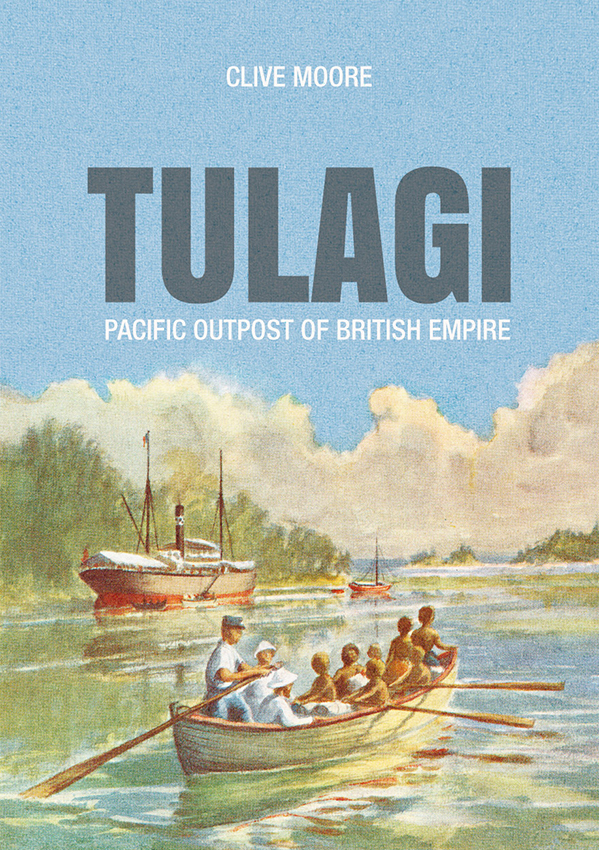Emeritus Professor Clive Moore may have officially retired from UQ, but he remains a prolific historian of important scholarship on the Pacific. History@UQ is delighted to announce the publication of his Tulagi: Pacific Outpost of British Empire, published by ANU Press. Despite the centrality of Tulagi to the Pacific colonial experience, little has been known of it, and Moore has provided the first significant study into its history.
This book traces the history of Tulagi, one of over 900 islands and atolls that make up the current day Solomon Islands. Physically, Tulagi might be described as a tropical paradise: the lush rainforests giving way grasslands and eventually to glorious coastlines and clear waters. Tulagi was and is populated by Indigenous peoples, known as Gela people after the Gela group of islands, and who had strong kinship and trading links with a range of other islands in the region.
 Tulagi was colonised by the British, becoming a protectorate in 1893, and named as the capital of the British Solomon Islands Protectorate from 1897 to 1942. Over time, Tulagi came to include a small town and the enclave of islands, all under imperial control. During this process, large areas of land were alienated from traditional owners.
Tulagi was colonised by the British, becoming a protectorate in 1893, and named as the capital of the British Solomon Islands Protectorate from 1897 to 1942. Over time, Tulagi came to include a small town and the enclave of islands, all under imperial control. During this process, large areas of land were alienated from traditional owners.
Moore traces the decades of colonisation, culminating in the decline of colonial interest in the town and its surrounds after the Pacific disasters of World War II. The British withdrew from the Island in 1942, and it was captured by Japanese forces. Though it would be retaken by American troops, the former capital was heavily damaged, seen as beyond repair. Attracted by the new and modern facilities left behind by the Americans, the British decided to move to the capital to the military base of Guadalcanal, now Honiara.
But Moore’s book is much more than a political history of colonisation and decolonisation. It’s a rich social history, too. He traces the complex relationships between Tulagi’s inhabitants: Solomon Islanders, Europeans and Chinese. Tulagi was an important port for the movement of Pacific Islander labour forces, with men moving through the town on their way to work as indentured labourers on plantations in Queensland, Fiji and on Tulagi itself. The town also served as a hub for other forms of labour, including servants and boat crew. Islanders also came to the capital as both prisoners and as patients seeking medical care. Yet despite this, Tulagi remained a relatively small imperial outpost, and its size, Moore argues, was one of its defining features. With roughly 600 inhabitants in 1942, Tulagi was a ‘poor cousin’ compared to other Pacific centres of the time. It lacked even a primary school, let alone a newspaper.
Moore weaves a fascinating account of the intersections between race, class, sex, and gender, during this moment of Empire. He explores intimate and domestic relationships, as well as of the political and economic machinations. Through this, he helps us to understand the process of colonisation that continued in the Pacific well into the twentieth century.
Richly illustrated, Tulagi: Pacific Outpost of British Empire is free to download from ANU Press, and can be purchased as a paper copy as well. This new work will be important reading for those interested in the history of the Pacific Islands. Congratulations, Professor Moore!
